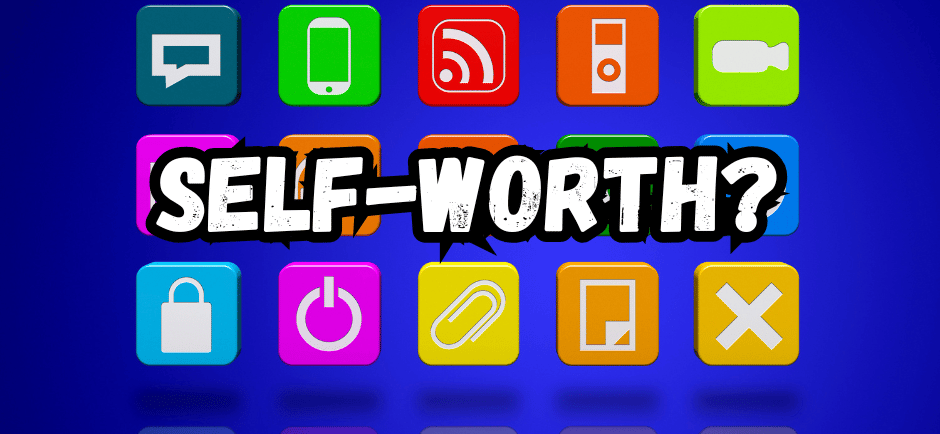Social Media and Self-Worth


Social Media and Self-Worth
A Devotional for Young Hearts (Ages 7-14)
Opening Thought
Maybe you've seen it happen: someone posts a picture and then keeps checking their phone to see how many likes it gets. Or perhaps you've scrolled through posts feeling like everyone else has a more exciting life than you do. Even if you don't have your own social media accounts yet, you've probably noticed how much these apps seem to matter to older kids and adults around you.
Here's the thing about social media: it can be a fun way to stay connected with friends and family, but it can also become a dangerous place to look for your worth. When you start measuring how valuable you are by digital numbers—likes, followers, comments—you're building your identity on something that can disappear with the next algorithm change. God has a much better foundation for your self-worth, one that never crashes, never gets hacked, and never changes based on other people's opinions.
God's Word Says...
"She is clothed with strength and dignity; she can laugh at the days to come."
Proverbs 31:25 (NIV)
"Do not let your adornment be merely outward—arranging the hair, wearing gold, or putting on fine apparel—rather let it be the hidden person of the heart, with the incorruptible beauty of a gentle and quiet spirit, which is very precious in the sight of God."
1 Peter 3:3-4 (NKJV)
"But the Lord said to Samuel, 'Do not consider his appearance or his height, for I have rejected him. The Lord does not look at the things people look at. People look at the outward appearance, but the Lord looks at the heart.'"
1 Samuel 16:7 (NIV)
"Your beauty should not come from outward adornment, such as elaborate hairstyles and the wearing of gold jewelry or fine clothes. Rather, it should be that of your inner self, the unfading beauty of a gentle and quiet spirit, which is of great worth in God's sight."
1 Peter 3:3-4 (NIV)
"Therefore, if anyone is in Christ, the new creation has come: The old has gone, the new is here!"
2 Corinthians 5:17 (NIV)
How Social Media Can Mess with Your Self-Worth
The Numbers Game
What it looks like: Measuring your worth by likes, followers, views, or comments Why it's dangerous: These numbers can change for reasons that have nothing to do with you—algorithm changes, what time you post, or just random chance The truth: Your value isn't a number that goes up and down. God's love for you is constant and unchanging
The Highlight Reel Trap
What it looks like: Comparing your real life (including boring and hard moments) to other people's best moments that they choose to share Why it's dangerous: You only see the good stuff others post, not their struggles, bad days, or normal moments The truth: Everyone has challenges and ordinary moments—they just don't usually post about them
The Validation Addiction
What it looks like: Feeling good about yourself only when posts do well, and feeling terrible when they don't get much attention Why it's dangerous: You become dependent on other people's approval for your happiness The truth: God's approval is the only one that truly matters, and you already have it
The Appearance Obsession
What it looks like: Spending hours trying to get the perfect photo, using lots of filters, or feeling bad about how you look compared to others Why it's dangerous: It makes you focus on external things instead of the character qualities that actually matter The truth: God made you beautiful exactly as you are, and your worth isn't based on how you look
The Fear of Missing Out (FOMO)
What it looks like: Feeling left out or sad when you see others doing fun things without you Why it's dangerous: It makes you focus on what you don't have instead of being grateful for what you do have The truth: You can't be everywhere and do everything, and that's perfectly normal and okay
The Difference Between Online Life and Real Life
Online: Curated Perfection vs. Real Life: Beautiful Messiness
Social media posts are like movie trailers—they show you the most exciting parts but not the whole story. Real life includes homework struggles, family disagreements, bad hair days, and ordinary moments. That's not failure; that's being human!
Online: Instant Feedback vs. Real Life: Slow Growth
On social media, you get likes and comments immediately. In real life, building character, developing friendships, and growing in wisdom takes time. Don't let the instant gratification of social media make you impatient with the slower but more meaningful work of real personal growth.
Online: Performance vs. Real Life: Authenticity
Social media often rewards performing a version of yourself rather than being genuine. But the most fulfilling relationships and experiences come from being authentic, not from maintaining a perfect image.
Online: Passive Consumption vs. Real Life: Active Participation
Scrolling through feeds is passive—you're just watching other people's lives. Real life requires you to actively participate, take risks, make mistakes, and learn. That active participation is where real growth and joy happen.
Biblical Principles for Healthy Social Media Use
Remember Your True Identity
You are God's beloved child, created in His image, with unique gifts and a specific purpose. This identity doesn't change based on how many people follow you or like your posts. When you start feeling defined by social media metrics, remind yourself who God says you are.
Practice Gratitude Instead of Comparison
When you see something that makes you jealous or feel left out, try to turn it into gratitude. Instead of "I wish I had that," try "I'm happy for them, and I'm grateful for what I have." This trains your brain to see abundance instead of scarcity.
Focus on Real Relationships
Social media connections aren't the same as real friendships. Prioritize spending actual time with people who know and love the real you. These relationships will be much more fulfilling than having lots of followers who only know your online persona.
Use Technology as a Tool, Not a Master
Technology should serve you, not control you. If social media starts making you feel bad about yourself, anxious, or obsessed with validation, it's time to take a break or change how you use it.
Share Encouragement, Not Just Highlights
If you do use social media, try to share things that encourage others rather than just showcasing your best moments. Celebrate your friends' successes, share inspiring quotes, or post about things you're grateful for.
Practical Tips for Protecting Your Heart Online
The Reality Check Questions
Before posting, ask yourself:
"Am I sharing this to encourage others or to get validation?"
"Am I being authentic or trying to impress people?"
"How will I feel if this doesn't get much attention?"
The Time Limit Strategy
Set specific times for checking social media rather than constantly scrolling. Maybe 15-20 minutes after homework is done, rather than checking throughout the day.
The Comparison Detox
When you catch yourself comparing your life to someone else's posts, immediately think of three things you're grateful for in your own life.
The Unfollow Freedom
You don't have to follow accounts that make you feel bad about yourself. It's okay to unfollow or mute accounts that consistently make you feel jealous, inadequate, or frustrated.
The Real Life Priority
For every hour you spend on social media, try to spend two hours doing real-life activities—sports, hobbies, face-to-face time with friends, reading, or creative projects.
The Authenticity Test
Try posting something real and unfiltered occasionally—a book you're reading, a hobby you enjoy, or just a normal moment from your day. Notice how it feels different from posting for likes.
What to Do When Social Media Hurts Your Self-Worth
Recognize the Warning Signs
Feeling bad about yourself after scrolling
Obsessing over likes and comments
Comparing yourself constantly to others
Feeling anxious when you can't check your phone
Losing sleep because you're on social media too late
Take Action Steps
1. Talk to a trusted adult about how social media is making you feel
2. Take regular breaks from social media (start with one day per week)
3. Remind yourself of God's truth about who you are
4. Focus on real-life activities and relationships
5. Pray for wisdom about how to use technology in healthy ways
Find Better Sources of Validation
Instead of looking for validation online, try:
Spending time with people who know and love the real you
Developing your talents and interests
Helping others and making a positive difference
Reading God's promises about who you are
Celebrating small personal victories and growth
Questions to Think About
1. How does social media make you feel about yourself? What patterns do you notice?
2. What's the difference between how you act online versus how you act in real life?
3. If social media didn't exist, how would you feel about yourself and your life?
4. What are some ways you could use social media to encourage others instead of just getting validation?
Prayer
Dear God, help me to remember that my worth comes from You, not from likes, followers, or comments. When I'm tempted to compare my real life to other people's highlight reels, remind me that You see and love every part of my life—the ordinary moments and the exciting ones. Give me wisdom to use technology in ways that honor You and help others. Help me to be authentic instead of trying to impress people, and to find my validation in Your love rather than in other people's approval. When social media makes me feel bad about myself, remind me to take a break and remember who You say I am. Help me to be the kind of person who encourages others both online and in real life. In Jesus' name, Amen.
This Week's Challenge: The Real Life Focus
This week, try to spend more time building your real life than your online presence:
Day 1: Have a face-to-face conversation with someone instead of texting or commenting Day 2: Do something creative or active without posting about it Day 3: Compliment someone in person rather than just liking their posts Day 4: Take a complete break from social media for the entire day Day 5: Write down three things you're grateful for instead of scrolling Day 6: Help someone with something practical instead of just sending encouraging messages online Day 7: Read or spend time in nature without documenting it on social media
Notice:
How does it feel to experience things without needing to share them online?
What's different about in-person interactions versus online ones?
How does your mood change when you focus on real life versus social media?
What activities make you feel most like yourself?
Remember This
Social media can be a fun tool for staying connected, but it's a terrible foundation for your self-worth. The most fulfilling life comes from real relationships, authentic experiences, and knowing who you are in God's eyes.
You are not your follower count. You are not your like ratio. You are not the perfect image you can create with filters and staging. You are God's beloved child, created with purpose, gifted with unique talents, and loved beyond measure.
The most beautiful, interesting, and valuable parts of who you are can't be captured in a post or measured in digital metrics. Your kindness to a lonely classmate, your creativity when no one's watching, your growth through challenges, your authentic laughter with friends—these are the things that truly matter.
Don't let a device designed to grab your attention steal your attention from the real life God has given you. Your worth was established by God before social media existed, and it will remain long after these platforms are gone.
Use technology wisely, but live your life fully. The real world—with real people, real experiences, and real growth—is where your true story unfolds. And that story is beautiful, valuable, and worth living, regardless of how many people double-tap to show they agree.
